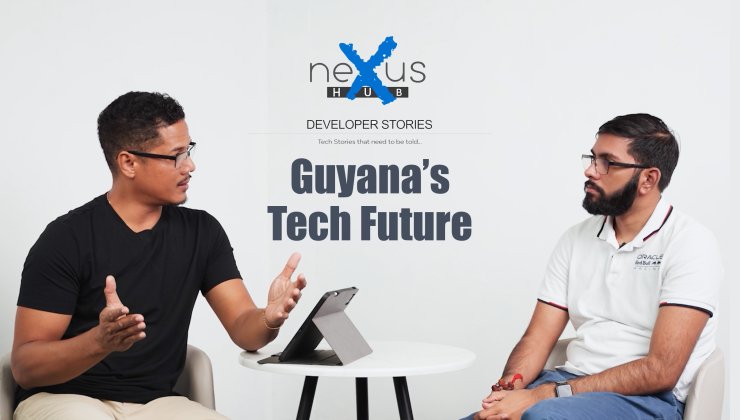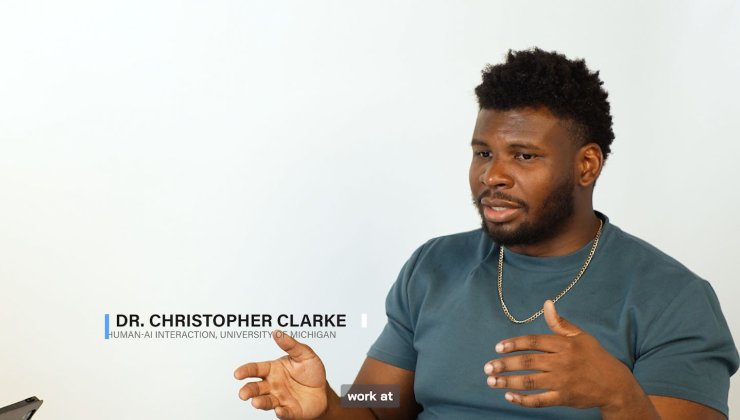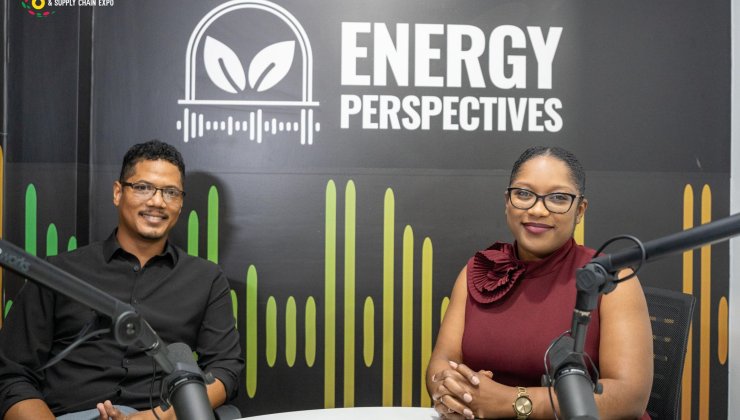In a world where technology is constantly evolving, the technological landscape in Guyana can often seem to be at a standstill.
Recognizing many of the limitations to developing the sector and also creating an enabling environment for upcoming tech professionals, Eldon Marks would in 2014 develop V75 Inc.
Founded with a mission to invest in and harness Guyana’s intellectual capital through the technology industry, V75 is the only local company to specialize in conversational Artificial Intelligence software.
Aiming to support the development of tech developers in Guyana, V75 through its progressive, non-profit arm NeXus Hub Inc. has focused its efforts on tech ecosystem growth and youth development. This is often done through its paid apprenticeship programmes, internships and other growth opportunities.
With several impactful project-based achievements under its belt, such as building over 90% of conversational deliveries for US-based AI company Clinc Inc. the V75 team is constantly seeking ways within which to improve their work and services. Currently, Eldon in collaboration with Computer Scientist, Jason Mars has developed “TrueSelph,” a software that captures the digital persona of a person for practical applications. TrueSelph creates a “lifelike” digital version of an individual which can, in turn, have conversations with users online to explain concepts and services.
Asked about the inspiration behind TrueSelph, it was not surprising to learn that it emanated from within the elements of science fiction stories with pre-recorded interactive holograms as seen in “I, Robot” and “Transcendence.”
While others (such as this writer) might be quick to see this type of technology as the beginning of a Black Mirror episode, where technology and ethics diverge, Eldon is careful to note that they are already avoiding a host of ethical concerns due to the fact the TrueSelph employs only authentic captures of individuals, meaning consent needs to be granted.
He does foresee TrueSelph being able to digitally recreate deceased loved ones if it is that the appropriate in-person footage exists. These images, however, would need to be volunteered by the person before they are able to move forward. “TrueSelphs have to either be volunteered by the subjects in question, directly or be made publicly accessible in order to compose a meaningful Selph,” said Eldon, adding that TS is not “deep fake technology” which has been known to create ethical issues as it relates to misinformation and impersonation.
For now, though, the primary focus of TrueSelph is to tap into the chatbox market which is currently estimated to grow from USD$3Billion to USD$10.5B by 2026. Commenting on the focus on the chatbox market, Eldon said that while TrueSelph has a 360-degree range of freedom when it comes to possible applications, they have identified real problems when it comes to human-level engagement through chatbox technology. Being able to deliver interactive content in a personalised way will encourage visitor engagement to websites, social media, businesses etc. which chatbox technology currently struggles with. Influencers, marketers etc can interact with their followers and target groups in a way they were never able to before, creating an unforgettable one-on-one experience for the user.
“We anticipate that TrueSelph will be quickly recognized as a new means to deliver interactive content in a personalized way through websites and social media. As such it is expected to become very popular among social media users, particularly influencers; and in a secondary case, sales and marketing teams. TrueSelph’s approach puts the human into automated intelligent interactions. The focus on the AI chatbot market is an initial, low-hanging fruit we consider as a stepping stone to introducing TrueSelph’s capability to the world,” said Eldon.
Asked about the potential of TrueSelph to influence consumer culture and behaviour, potentially impacting people’s freedom of choice within the global market, Eldon stated that while TS is a tool that may be used as a delivery mechanism, its influence is still restricted to the content which it delivers. “This content is based on actual human beings sharing their views, therefore, TrueSelph is estimated to make no more impact on consumer behaviour than current social media influencers, for example.”
Long term, Eldon sees TrueSelph advancing to the point where much of society’s online interactions will be with a Selph of some kind; “a Selph to answer your utility bill inquiries, a Selph of an educator to impart knowledge in an infinitely scalable way; a Selph of a celebrity, in character to provide you with that next level movie trailer experience, a Selph on social media to turn static profiles into interactive ones; a Selph that leaves an interactive form of yourself behind, and the list goes on.”
While Eldon and Jason have filed a patent on the technology, the reality is that developing countries such as Guyana have many inadequacies in enforcing laws that protect intellectual property. Eldon notes, however, that with TrueSelph being a product with global applicability which will soon take to market, “replicating or creating derivatives of the experience that rival the current product will be a tall task to perform considering the intricacies of engineering and research which make the product as good as it is. If this were to be successfully duplicated locally, we’d definitely feel more thrilled than violated.”






